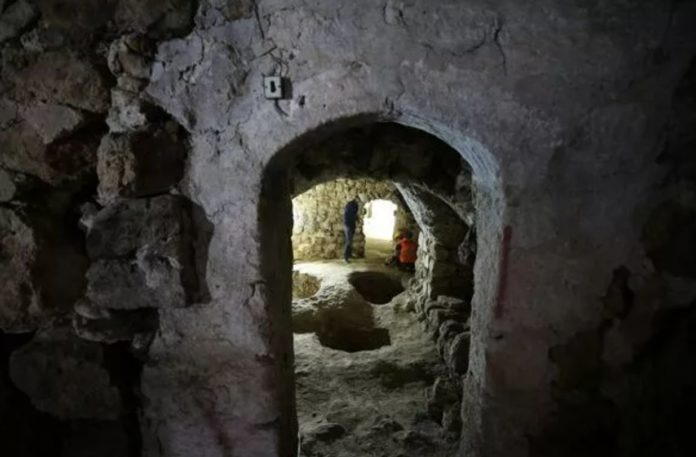ARCHAEOLOGISTS have discovered a large underground city in southern Turkey that they believe was used by early Christians to hide from Romans.
The massive subterranean metropolis was constructed about 2,000 years ago, and researchers believe it once housed up to 70,000 people. This hidden city is thought to have been a haven for persecuted Christians fleeing the Romans. During an effort to restore and maintain old streets and residences in the Midyat district of Mardin province two years ago, archaeologists found one of the ancient complex’s underground chambers.
Gani Tarkan, the director of the Mardin Museum and the excavations’ leader, told Anadolu Agency that the workers on this project first discovered a limestone cave, following which they discovered a channel that led them inside the ancient city.
He later told Live Science that while locals in Midyat were aware of the subterranean tunnels, they were unaware of the existence of a complete underground metropolis.
In the vast complex, researchers have unearthed 49 chambers, as well as connecting corridors, water wells, grain storage silos, and residence rooms.
A Christian chapel and a massive hall that appears to be a Jewish synagogue based on a Star of David emblem on the wall were among the places of worship in the chambers.
Mr. Tarkan said that the artifacts unearthed in the city, such as coins from the Roman Empire and oil lamps, suggested that the underground city was constructed in the second or third centuries A.D.
Researchers estimate that barely 5% of the huge complex has been identified thus far.
So far, the Matiate underground settlement has been discovered, covering an area of almost 100,000 square feet (10,000 square metres).
Mr. Tarkan estimates that the entire city may have been greater than 4 million square feet (400,000 square metres) and may have housed between 60,000 and 70,000 individuals.
He added: “It was first built as a hiding place or escape area.
“Christianity was not an official religion in the second century [and] families and groups who accepted Christianity generally took shelter in underground cities to escape the persecution of Rome.
“Possibly, the underground city of Midyat was one of the living spaces built for this purpose.”
He went on to say that this region was occupied by Christians before the central part of Turkey, according to ancient geographers.
Furthermore, Christians in the area were persecuted hard at the period, by both the Roman Empire and the Persian Empire in the fourth century.
Even in medieval times, there were occasions when entire towns and cities were utterly deserted, and thus it’s possible that the people of locations like Matiate were hiding out underground.
Image Credit: Getty
You were reading: World’s Oldest Underground Refugee Camp Thought to Be Found in Turkey
